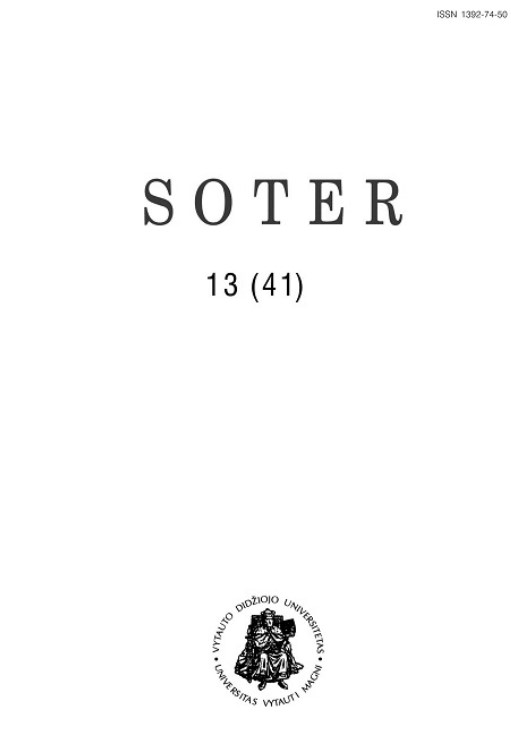FRYDERYKO CHOPINO IR FERENCO LISZTO RELIGINĖS PASAULĖŽIŪROS IR KŪRYBOS SĄSAJOS
THE CONNECTIONS OF RELIGION AND MUSIC IN THE COMPOSITIONS OF FRYDERIC CHOPIN AND FERENC LISZT
Author(s): Milda KazakevičienėSubject(s): Christian Theology and Religion, Cultural history, Music, 19th Century, History of Art
Published by: Vytauto Didžiojo Universitetas
Keywords: religion outlook; church music God; composer; compositions; music language Christian faith; modal armonies;
Summary/Abstract: The early 19th century saw a radical change in the composer’s function in society. Instead of providing music for an aristocratic employer, it was now wanted to please a multitude. The first group of composers: H. Berlioz, F. Liszt, R. Wagner grasped and held the attention of the huge new public and sought to lead it on to higher musical level. The next group hoped at first to preserve the values of true classical art. Robert Schumann was the most articulate spokesman of this group, F. Chopin - its most extreme practitioner. F. Chopin is unique among the great masters in that his compositions are almost exclusively for the piano instrument. When F. Chopin graduated from the Warsaw Conservatory, he traveled to Viena, Munich, Berlin as pianist and composer, winning a good success. The young artist stayed for a long time in Paris and made it as his new home. His fame was growing up and at his pivotal time of his life F. Chopin wandered from the faith of his childhood. He raised in a devout Catholic family and his parents continued to pray for their distant son and wrote him reassuring letters. In this period of disorientation and spiritual confusion, F. Chopin met the famous French novelist George Sand. She invited him to spend the summer of 183 8 with her, and for the next eight years they endured a stormy romance. Even in this phase of spiritual draught, there are indications that F. Chopin’s faith was trying to resurface. In Sand’s autobiography „Story of My Life” some passages seem that F. Chopin’s faith deeply surprised her. She complained that „he was a prisoner of Catholic dogma”. For much of this period F. Chopin was deeply distressed with inner turmoil, provoked in composer’s soul a permanent fear of hell, since his relationships with G. Sand had not been blessed by the Church. There is evidence that composer was a man of prayer, but he kept his religious feelings to himself and never touched upon his faith, but held it without attracting attention to it. The tension F. Chopin felt at this time of his life was finally resolved in a painful break with G. Sand. With maturity his religious feeling became intense. As F. Chopin’s conditions became critical, the Abbe Jelowicki, who had known the Composer for many years, was sent for. After spending much time with F. Chopin he repented, received a reconciliation and a new birth in Christ. Patience, trust in God, love to all people, even joyful confidence never left him in spite of all his sufferings till the last breath in the morning of October 17, 1849.
Journal: SOTER: religijos mokslo žurnalas
- Issue Year: 41/2004
- Issue No: 13
- Page Range: 157-175
- Page Count: 19
- Language: Lithuanian

